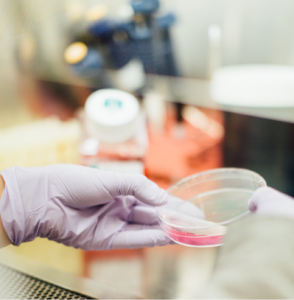
Food Technology (FoodTech) is an emerging sector improving the food industry through developments in production, processing, packaging, and distribution through innovations like alternative proteins, sustainable packaging, as well as supply chain optimisation. It addresses food security, resource efficiency, and environmental impact, driving economic growth with eco-friendly solutions.

The increasing relevance of FoodTech is part of a shift towards sustainability across various sectors. Recent global challenges such as climate change, population growth, and resource depletion have shown that traditional food production methods struggle to keep pace. This has led to advancements in FoodTech, including alternative proteins, sustainable packaging, and supply chain optimisation. FoodTech is crucial to the EU’s ambitions to achieve a sustainable food system, driven by initiatives like the European Green Deal, which supports innovations to reduce environmental impact and promote economic growth through sustainable food solutions.
FoodTech in the EU has experienced reasonable growth over the past years. Despite a drop of 8% in combined enterprise value from the 2021 peak of $200 billion (€187.1 billion), it still stood at twice the size of its 2019 value in 2022, at $185 billion (€173 billion), according to Dealroom. In fact, investment in alternative protein reached new heights in 2022, as well as sustainable FoodTech.
Climate change and geopolitical events, such as the Russian invasion of Ukraine, have underscored significant vulnerabilities in global food security and sustainability. These crises have accelerated advancements in FoodTech to address these challenges. Innovations in plant-based, lab-grown, and insect-based proteins are expected to help reduce dependence on traditional livestock farming, which is vulnerable to disruptions and has a high environmental impact.
These protein sources require fewer resources like water and land, and produce lower greenhouse gas emissions, contributing to a more sustainable and resilient food supply. Furthermore, developments in biodegradable and compostable packaging materials address the issue of plastic waste and reduce environmental pollution. Sustainable packaging also improves the shelf life and safety of food products, ensuring that food remains fresh during long transportation times, which is crucial in times of supply chain instability.

The EU offers several key funding programmes relevant to the FoodTech sector, such as Horizon Europe’s Cluster 6 (Food, Bioeconomy, Natural Resources, Agriculture, and Environment), aimed at fostering innovation and supporting sustainability. Furthermore, the European Innovation Council’s (EIC) Accelerator Challenges for 2024 include an opportunity for “Food from precision fermentation and algae”.
How can we help?
If you have a project idea for which you’d like to make use of funding available to bring it to life, then be sure to get in touch. With over 23 years of experience in funding procurement and participation in over 80 successful EU projects to date, AcrossLimits has a dedicated and experienced team that can help you draft proposals and apply to EU funding opportunities. With our expansive network spanning both the private and public sector as well as academia, we’re in pole position to cater to your needs.
To learn more about how we can help you make your project idea a reality, contact us at: [email protected].

